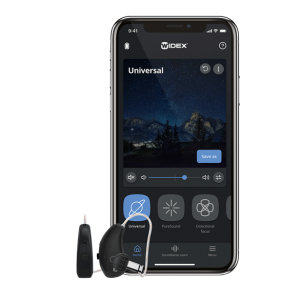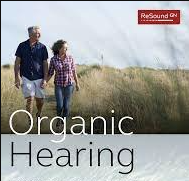Presbycusis/Age-Related Hearing Loss
Presbycusis or age-related hearing loss is the cumulative effect of aging on hearing. Presbycusis is the progressive and irreversible age-related sensorineural hearing loss resulting from the degeneration of the hair cells in the inner ear. This hearing loss is most prevalent in the higher frequency ranges. The cause of presbycusis is a combination of a lifetime of exposure to noise, genetics, and physical changes related to the natural aging of the body. Other than limiting your exposure to noise and living an overall healthy lifestyle, there are no preventative measures known.
Presbycusis is the most common cause of hearing loss, afflicting ⅓ of persons by age 65 and 1/2 by age 75. Presbycusis is the second most common health condition in older people. Arthritis is the most common.
Primary symptoms:
- Speech becomes muffled, dull, or attenuated
- Turning up the volume on the television, radio, or music
- Difficulty understanding speech on the telephone
- Hard to distinguish the directionality of sound
- More difficult to understand speech from women and children
- Difficulty understanding speech when background noise is present (Groups of people).
Secondary symptoms:
- Hyperacusis – A heightened sensitivity to loud and/or certain frequencies of sound.
- Tinnitus – A ringing, buzzing, hissing or other sound in the head or ear when no external sound is present
The onset of presbycusis usually occurs after the age of 50, but the deterioration in hearing has been found to start as early as age 18. Presbycusis affects the high-frequency part of our hearing more than low, and men more than women. Even young adults lose the ability to hear very high frequencies (above 15 or 16 kHz). Generally, age-related hearing loss becomes more noticeable later in life.
Noise-Induced Hearing Loss
Age-related hearing loss can be aggravated by exposure to environmental noise, whether encountered at work or at leisure (machinery, shooting, music, etc.) This is known as noise-induced hearing loss (NIHL) and is different from presbycusis. Another aggravating factor is exposure to ototoxic drugs and chemicals.
With presbycusis, the discrimination or the ability to understand high-pitched speech is negatively affected. Overall people generally express a decreased ability to understand speech and is more noticeable understanding women’s and children’s (higher pitched) voices. The impact of presbycusis on one’s communication capabilities depends on the severity of the condition and the person with which we are communicating with. Older adults with presbycusis often exhibit associated symptoms of depression, social isolation, anxiety, frailty, and cognitive decline.
Age-related hearing loss is generally treated with hearing aid wear. Hearing aids are generally extremely effective at overcoming the challenges and correcting hearing losses due to presbycusis.
For more information on affordable high-quality hearing aids and the necessary support services, please visit HearSource.com




